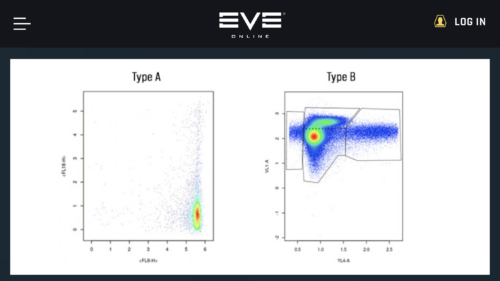
latest
Video gamers are helping scientists learn more about COVID-19
Project Discovery game is proving rich source of data for COVID research

One of the growing number of ‘citizen science’ projects involving video gamers is helping scientists with their work on COVID-19.
In the EVE Online game Project Discovery players use a tracing tool to mark groups of cell populations present in blood.
The latest version of the game uses previous learning on flow cytometry and cell populations to make the content more engaging for players.
Delivering accurate results
This means they play longer and continue to deliver accurate results to scientists studying the immune system’s response to the novel coronavirus
So far around 39.6 million submissions have been amassed since the project’s launch. Of those, 466,000 have already been verified and used in research.
Initially the main aim was to teach players how to demarcate unique populations in flow cytometry graphs and send their efforts to researchers.
Solid progress was made on that front so in September the software was refined with the aim of producing more accurate graphs.
"The hope is to improve clustering in charts like these which are more difficult to properly analyse" EVE Online

“This project is crashing through all my expectations,” said Dr Ryan Brinkman, Professor in Medical Genetics at the University of British Colombia.
Data to be shared
“Players’ efforts will not only contribute to the understanding of COVID-19 but the data they are generating will also be freely and widely shared with the entire scientific community”.
He added that there was very high interest in re-using the results for generating machine learning algorithms.
“There is simply no other resource out there for this anywhere close to what is now being generated.”
Attila Szantner, the CEO and co-founder of Massively Multiplayer Online Science (MMOS), a Swiss company specialising in connecting citizen science and games, said Project Discovery was an exciting development.
“We have been working on it for five years and it is amazing to see how the EVE player community keeps tirelessly participating in research efforts.
“This contribution is especially important and valuable in these pressing times.”
